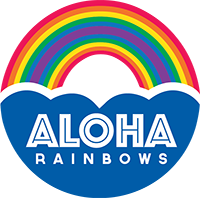As I head toward the final Advanced LomiLomi Training in Australia, I have been reflecting on the prevalence of people purporting to ‘do’ lomilomi, to ‘incorporate some lomilomi strokes and techniques’.
On a visit to the gym recently I saw a flyer for the new massage practitioner there. On reading the flyer, that phrase was the cause of a deep HA sigh and eye- rolling exercise. I did do my mahalo’s for the opportunity of the eye exercises and deep breath as I headed into Pilates class. 🙂
This excerpt written some years ago by Kumu Dane Silva sums up and helps clarify this matter of mis-use of the term lomilomi.
“ What is lomi? … Although the Hawaiian dictionaries define lomilomi as massage, it would be useful if we consider that the term was used by ancient Hawaiians. In other words, other forms of massage were unknown. Lomilomi does not refer to massage in general; it refers to traditional Hawaiian forms of massage and healing methods.
Today, we see people using the word lomi or lomilomi to describe what is not traditional Hawaiian massage. They naively think that the word can be used to describe their form of massage because that is what the dictionary says it means. This is not appropriate because it confuses the public into thinking that this non-Hawaiian form of body therapy is based on traditional protocols, concepts and techniques. It is also offensive to Native practitioners.
In marketing and advertising terms, the use of the word lomilomi can be powerful. The use of the word kahuna is powerful. When a practitioner uses the word lomilomi they should not be referring to a non-Hawaiian form of therapy. When a practitioner uses the word kahuna they should not be referring to a person who is not a member of the Native hierarchy of masters. “
Lomilomi in many ways has little to do with ‘technique’. It does however have everything to do with upholding and honouring traditional Hawaiian values and practices, with protocol, with connection to the ancestors, connection to Spirit, with sacredness, with being pono and living aloha.
As with Ho’oponopono, Lomilomi has too been a huge target of Westernised mis-appropriation and mis-use.
Malama Pono


